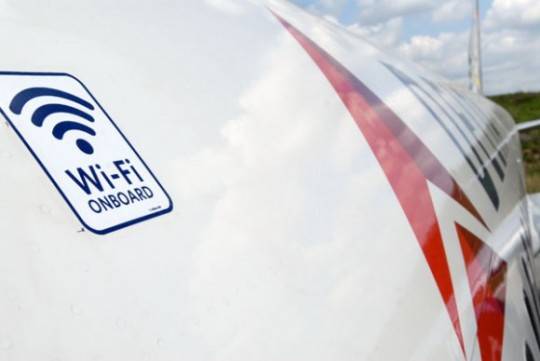
Airplane passengers in the US who would rather not know of the details of their seatmate’s relationships or business transactions might soon be able to breathe a sigh of relief. The Department of Tourism is expected to weigh in on the issue of allowing cellphone calls while in flight, and the agency has hinted that it will be opposing the idea with a more formal and definitive policy.
Last year, the Federal Aviation Administration’s (FAA) allowed the use of electronic and mobile devices during all phases of flight, but required mobile phones and tablets to remain in Flight Mode, The Federal Communications Commission (FCC), however, proposed to revise that decades old rule, calling it antiquated and unnecessary. Mobile and network technology has developed to a point that the technical and safety concerns that gave birth to those rules no longer apply. The FCC, however, is leaving the final word to government agencies and ultimately to airlines whether to allow text messaging and cellular calls during flight.
It is that latter the DoT, as well as many frequent fliers, are opposing. While text messaging is hardly a nuisance, provided the phone is on silent mode, based on experience, voice calls can be more disruptive and could inconvenience other passengers. The agency will try to once more use the “safe and adequate service” doctrine of transportation laws, which it has wielded successfully in the past, in order to enforce a ban on in-flight calls, should the policy be finalized. Interestingly, FCC chair Tom Wheeler himself revealed that he is no fan of in-flight calls, trying to appease the masses who have stormed the FCC’s communication channels in opposition of its earlier proposal.
Although airlines aren’t exactly lining up to offer their passengers this service, they do not want the DoT to set its foot down on the matter at all. They believe that they should be allowed the final say in the matter just as the FCC did. This would give them the opportunity to offer the use of cellular services in more restricted ways, like phone booths or segregated and sound proof sections. A DoT spokesperson said that the agency is indeed working on a notice for proposed rulemaking to be published by December but hasn’t yet made up its mind about the matter.
SOURCE: Wall Street Journal
VIA: SlashGear










“could inconvenience other passengers”. But the seats that are about 1 foot wide and leaves you rubbing elbows with the guy next to you… They are OK with that. Or the chairs that recline about an inch… that is convenient to them. OK got it. Suddenly they are worried about the comfort of the passengers?